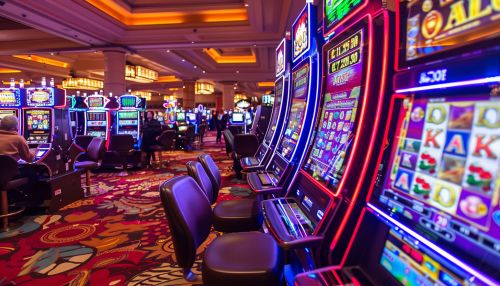Gambling addiction
Introduction
Gambling addiction, also known as problem gambling, is a serious and growing issue worldwide. It is characterized by an uncontrollable urge to gamble, despite harmful negative consequences or a desire to stop. Problem gambling is often defined by whether harm is experienced by the gambler or others, rather than by the gambler's behavior. Severe problem gambling may be diagnosed as clinical pathological gambling if the gambler meets certain criteria.
Understanding Gambling Addiction
Gambling addiction is a type of impulse control disorder where individuals cannot control their urge to gamble, even when they know that it can have severe negative consequences. It is often associated with other mental health disorders such as anxiety, depression, and substance use disorder.


Causes of Gambling Addiction
The exact cause of gambling addiction is unknown, but both environmental and genetic factors contribute to its development. Some individuals may be predisposed to becoming addicted to gambling due to their genetic makeup. Other factors such as easy access to gambling, social pressures, and personal stress can also contribute to the development of a gambling addiction.
Symptoms of Gambling Addiction
The symptoms of gambling addiction can vary from person to person, but there are some common signs that may indicate a problem. These include an increasing preoccupation with gambling, needing to bet more money more frequently, restlessness or irritability when attempting to stop, and loss of control manifested by continuation of the gambling behavior in spite of mounting, serious, negative consequences.
Diagnosis of Gambling Addiction
Diagnosis of gambling addiction is typically made by a mental health professional, using a variety of tools and techniques. This can include a thorough review of the individual's medical history, a physical examination, and the use of screening tools such as the Problem Gambling Severity Index (PGSI).
Treatment of Gambling Addiction
Treatment for gambling addiction is typically multi-faceted and individualized, depending on the needs of the individual. This can include cognitive behavioral therapy (CBT), medications, self-help groups such as Gamblers Anonymous, and sometimes, inpatient treatment programs.
Prevention of Gambling Addiction
Prevention of gambling addiction involves a combination of personal responsibility, legislation, and industry regulation. This can include self-exclusion programs, where individuals voluntarily ban themselves from gambling venues or online gambling sites, and the use of harm minimization strategies such as setting time and money limits.
Impact of Gambling Addiction
The impact of gambling addiction can be devastating, affecting every aspect of an individual's life from their personal relationships to their financial stability. It can lead to serious legal problems, job loss, and even suicide.
Conclusion
Gambling addiction is a serious problem that affects millions of people worldwide. With the right help and support, however, it is possible to overcome this addiction and regain control over one's life.
